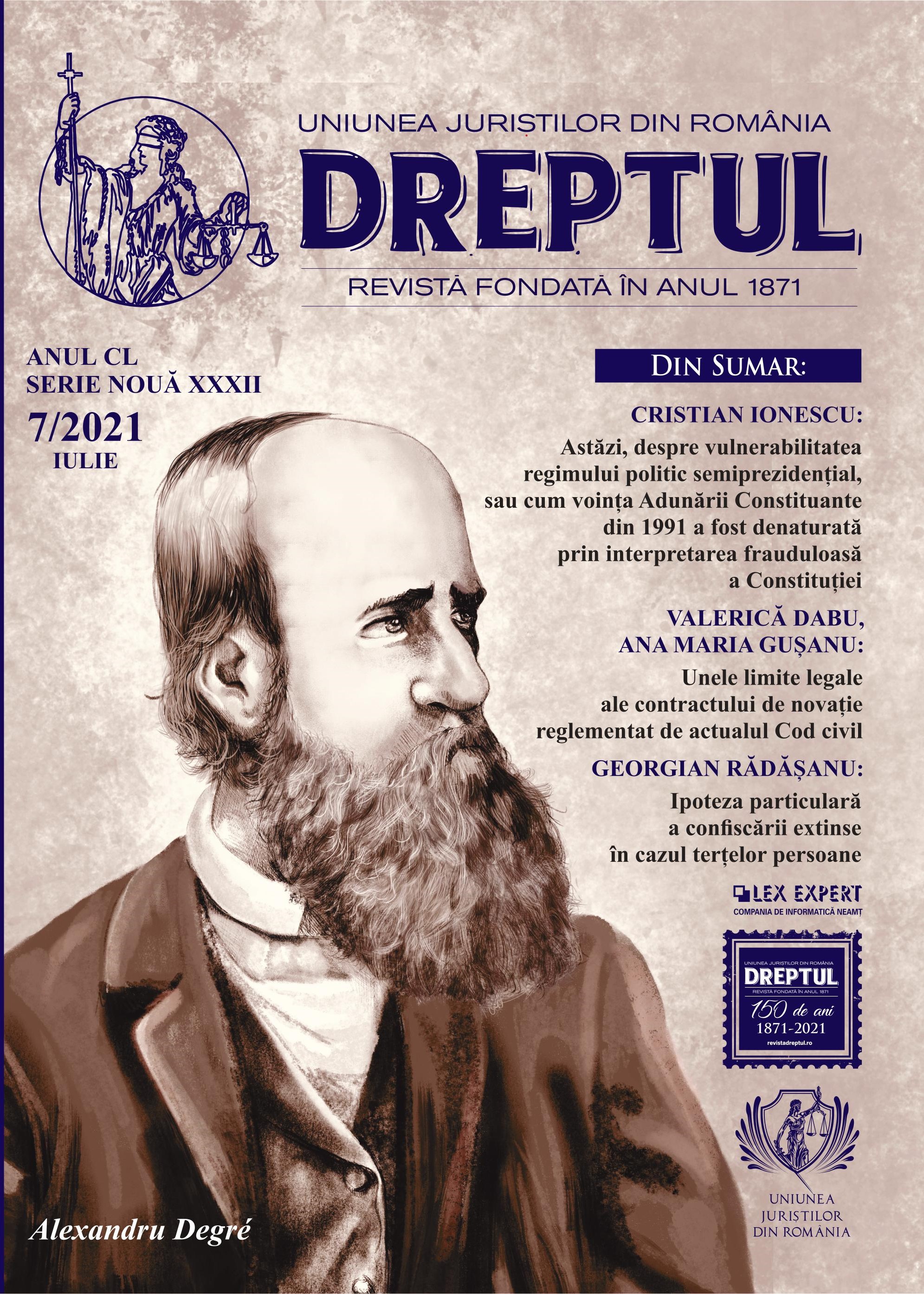Despre soarta locuinței conjugale la divorț. Probleme practice
About the fate of the marital dwelling place at divorce. Practical issues
Author(s): Cristian-Costa IanușSubject(s): Civil Law
Published by: Uniunea Juriștilor din România
Keywords: matrimonial regimes; effects of divorce; matrimonial convention; family dwelling place; lease; co-ownership;
Summary/Abstract: Although we are close to the tenth anniversary of the entry into force of the new Civil Code, the doctrine outlined around the institution of granting the benefit of family dwelling place at divorce has had reservations in providing solutions to some crucial issues for solving this type of applications. At the same time, the courts have frequently come up with contradictory solutions to these issues, however some guiding solutions can be distinguished.The main aspects on which we noted the existence of some divergences have concerned the admissibility by separate way, after the pronouncement of the divorce, of the application for the allocation of the dwelling that served as a family dwelling. Another hypothesis on which we will focus in the present study is that of possession of the dwelling place by the spouses on the basis of other rights than those expressly raised for discussion in Article 324 of the Civil Code, such as the right of usufruct or the one arisen from the loan agreement. At the same time, we will try to offer several arguments based on which the courts could assign to the non-title holder spouse of the lease contract, under certain conditions, even the dwelling place with special rental regime initially allocated to the other spouse according to the criteria provided by the Law No 152/19981, there being numerous discussions around this subject just before the entry into force of the current Civil Code.The debates behind these divergences are not only of interest to legal theorists, but have strong practical implications, the fate of the entire application depending on the solution offered, thus being essential to establish some stable and predictable rules, especially in a matter where safety should prevail, given the often vulnerable situation of the parties involved in the process.Therefore, the present study tries to offer some adequate solutions for the above-mentioned inconveniences, starting with the analysis of the criteria which the legislator has created for the allocation of the conjugal dwelling place, especially in the higher interest of the minor, following that, in the second part of the study, we would actually deal with the issues mentioned.
Journal: Revista „Dreptul”
- Issue Year: 2021
- Issue No: 07
- Page Range: 40-52
- Page Count: 13
- Language: Romanian
- Content File-PDF

